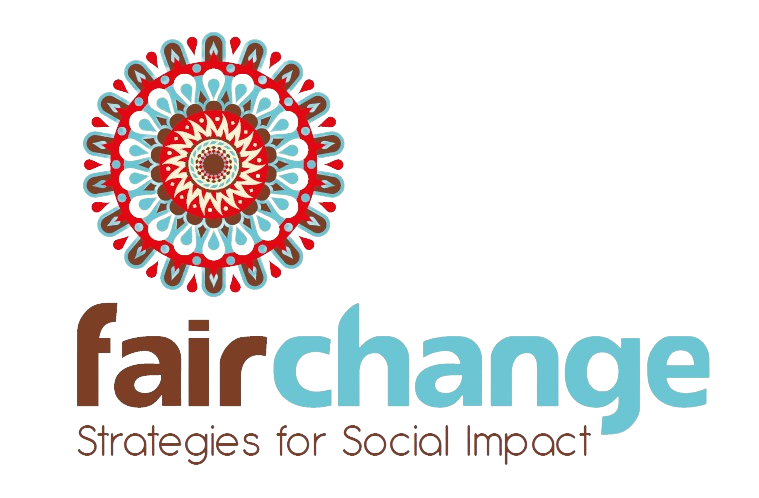A job interview for a vacant business and human rights position at an organization I worked for took an unexpected twist when our favorite candidate messed up in the last two minutes. This real-life story reminds us that ‘micromachismos’ – instances of everyday sexism at work – stand in the way of gender equality. And that’s not just bad for women; it’s bad for business. In this case, it also cost a man his job.
It had been an excellent interview. Richard was a business and human rights professional with an impressive resume. Having worked with market-leading companies, NGOs, UN agencies, and government agencies across Latin America, he showed up well prepared and motivated. Without effort, he gave all the right answers to our questions.
Tough situations in a team
Yolanda, the manager of our Human Rights department, was off on an unforeseen field visit so she delegated the task of doing the job interviews for the vacant role of senior human rights advisor to us, a team of three. Richard was the last of six invited candidates and we all felt he was a great match.
We were about to close our notebooks and get up to shake his hand in a hope-to-see-you-back-soon kind of way when colleague Miguel asked one last thing. ‘Richard, can you share how you deal with tough situations in a team?’
The overused textbook job interview question that we hadn’t bothered to bring up. But well, there it was. With an encouraging smile we turned to our candidate.
Grabbing a beer with the guys
But his answer was not what we expected. ‘Well, it depends,’ Richard said. ‘If there’s an issue involving male colleagues, it’s easy. But women! They are SO difficult! With the guys, you know, you invite them to a sports ground after work, kick a ball and grab a beer together – and that’s it. Best friends again.’
Shaking his head, he gasped: ‘With women, it’s a totally different story. They make a fuss out of every detail and never seem able to get over it. Takes ages and an awful lot of massaging to get them back on track.’
Our CEO is a woman
Walking to our desks after the interview we rolled our eyes and laughed in disbelief. ‘I don’t think Yolanda would appreciate a new team member who thinks women are difficult,’ Miguel said dryly.
‘Yeah. Plus, didn’t the guy do his homework? Everybody knows our CEO’s a woman!’ my colleague Julia exclaimed. And gesturing my way she added: ‘WE are women, as he might have noticed. Show a little respect for us, baby!’
Off the list went our favorite candidate – clearly not the best guy for the job after all. Human rights are women’s rights. And that includes promoting gender equality and avoiding demeaning comments. There’s no point in getting out to advise business clients on human rights if you don’t practice what you preach at home.
Everyday sexism is universal
Spanish speakers call it ‘micromachismos’. It’s a spot-on and difficult-to-translate word referring to tiny sexist remarks and behaviors in daily life and at work where men, subtly but no less annoying, demonstrate superiority over women.
Although the word micromachismos is Spanish and this experience happened at work in Latin America, the phenomenon is universal. The Everyday Sexism Project, founded in 2012 by British writer and activist Laura Bates, shows how widespread it is. Ranging from street harassment to on-the-job discrimination, the website has now collected over 200,000 testimonies from people across the globe. New branches were launched in 25 countries worldwide – clearly catering to a pressing need.
Gender equality improves financial performance
Often, if we as women or witnesses are faced with another of those annoying chauvinist remarks and behaviors, we shrug our shoulders or laugh it off. Why bother?
Well, here’s why.
Even in cases where such remarks or behaviors are not intended to degrade or offend, they perpetuate gender inequalities. And that does not just put women at a disadvantage, but organizations as well.
Since the first studies on the link between gender equality and company performance appeared around two decades ago, evidence has been mounting that gender equality is good for business (find some references below). Companies that commit to gender equality, invest in women workers, and support women’s leadership and decision-making typically do better than their competitors.
According to McKinsey (2020), companies with more than 30% women on their executive teams are significantly more likely to financially outperform those with between 10 and 30% women, and these companies, in turn, are more likely to outperform those with fewer or no women executives.
As a result, McKinsey concludes there’s a substantial, 48% performance differential between the most and least gender-diverse businesses.
Divers businesses are better places to work
Of course, it’s not only boardroom diversity and financial performance that matter if you want to be a good business. Equality between male and female colleagues means there’s a safe working environment where women feel recognized and at ease.
It means women receive equal pay for work of equal value, and there’s room for growth and promotion so that women can reach their full potential, just like their male colleagues. Ultimately, this leads to gender-diverse boardrooms where decisions are made that reflect the needs and aspirations of male and female workers; male and female customers alike.
All this pays off in many more ways than just financial returns. According to an ILO study (2019), two-thirds of companies surveyed agreed that diversity initiatives improved their business outcomes. In addition to increasing profitability and productivity, inclusive businesses are 60% more likely to attract and attain talent and 59% more likely to increase creativity, openness and innovation.
Not surprisingly, gender diversity and equality enhance company reputation, and the probability of gauging consumer interest and demand is 38%, the ILO survey found.
Slow progress on inclusion and diversity
Although the business case for inclusion and diversity is stronger than ever, progress has been slow. Global research shows that gender gaps in the workplace are still prevalent among businesses – across countries and across company sizes and sectors.
A lot of work still needs to be done to close that gap. Inclusive leadership is key, but we can all do our part regardless of our role in the organization.
So, why don’t we start by minding our manners? Let’s get rid of micromachismos once and for all.
Resources
Everyday Sexism Project – global catalog with instances of sexism experienced on a day-to-day basis
Recommended watch: Everyday Sexism Project founder Laura Bates TEDxCoventGardenWomen talk, where she shares her own experiences with niggling and normalized sexism
For Spanish speakers: ‘No te ha pasado que…’ (‘Did it ever happen to you that…’) We used it during workshops on gender inclusion and equality: a funny and powerful video where women and men shift roles when talking about common cases of micromachismo.
One of the early studies that found a positive correlation between gender equality and business performance: McKinsey & Company (2007), Women matter: gender diversity, a corporate performance driver
Today, McKinsey has shifted the framing of its equality and inclusion research, conducted at regular intervals over the years, from ‘Women matter’ to ‘Diversity wins’, which sounds more confident, and rightly so. The data says it all. Here’s the research paper cited in this article: McKinsey & Company (2020): Diversity wins. How inclusion matters
Another comprehensive study (2016) focusing on businesses in Europe by the International Monetary Fund among 2 million businesses documented a positive association between corporate return on assets and the share of women in senior positions: IMF Working Paper. Gender diversity in senior positions and firm perfomance: Evidence from Europe
The International Labour Organisation (ILO) research cited in the article can be found here – with some telling graphics plus tips on how you can tackle gender inequality in your business: Beyond the glass ceiling: why businesses need women at the top
Data provider Equileap offers Gender Equality reports & rankings, covering businesses around the world
Ending on a musical note – when recalling the conversation my colleagues and I had after interviewing Richard (note that the names in this article have been changed), a famous song by a fierce lady comes to mind. ‘Respect’ by Aretha Franklin. Find it on Spotify or Apple Music or your preferred music provider.
Look out for my next blog post, where I’ll highlight some gems from the special Girl Power playlist I’ve created on the occasion of International Women’s Day and Women’s History Month (we’re inclusive, so this is not just for females!)
Did you like this blog post? Subscribe to Purpose & Impact Now and you’ll be the first to receive new articles, tools and tips to do business with a higher purpose and grow your positive impact. Yes! Put me on the mailing list.

